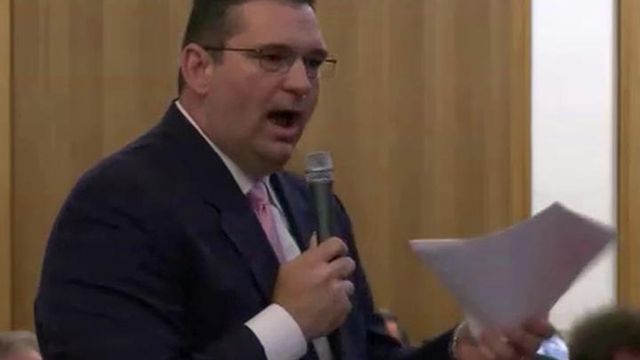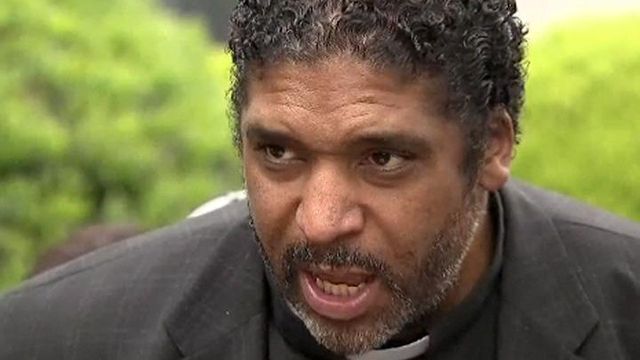House approves voter ID
Presenting photo identification before being able to vote in North Carolina moved a step closer to reality Wednesday when the House approved a Republican-backed proposal.
House Bill 589 passed on an 81-36 vote and now moves to the Senate.
"Our system of government depends on open and honest elections," said Rep. David Lewis, R-Harnett. "Having people prove they are who they say they are makes sense."
The bill, dubbed the Voter Information Verification Act, or VIVA, would require IDs with every election held after January 2016. It would allow people to present various state-issued IDs, such as public university IDs and state employee IDs, but private university IDs would not qualify.
A Democrat attempt to amend the bill to allow private school IDs failed mostly on a party-line vote, as did a series of other amendments that would have allowed people without a photo ID more leeway to cast a ballot.
One proposed amendment would have allowed people to cast provisional ballots and provide other identifying information for local elections officials to confirm their identities and count their votes during a canvass. Another would have allowed poll workers who personally know any voter to verify their identity.
"Voting is a right, but it's also a responsibility to do it intelligently," said Rep. Ruth Samuelson, R-Mecklenburg, who noted that people will have more than two years to get an ID before it's required in an election.
Republican sponsors did back amendments that allow tribal cards to be used as official IDs – they had struck the tribal cards from the list a week ago – and exempt people from the ID requirement following the declaration of a natural disaster.
Rep. Darren Jackson, D-Wake, tried to have the legislation apply the same ID standards to mail-in absentee voting, saying it's far easier to cast a fraudulent vote by mail than in person.
Under the bill, absentee voters would have to provide a driver's license number, the final four digits of a Social Security number or other federally-approved identification documents, such as a copy of a utility bill, with their mail-in ballot.
"You're creating two classes of voters," Jackson said, shortly before his proposal was soundly defeated.
As they have in three committee hearings in the last week, Democrats charged that the voter ID requirement would disproportionately hurt women, the elderly and minorities because they are less likely to have a photo ID.
"This will make it harder for people to vote," said Rep. Rick Glazier, D-Cumberland, adding that it caters to people who fear voter fraud at the expense of others who simply want to vote. "Freedom from fear is not a fundamental right, but the right to vote is."
House Minority Leader Larry Hall said there is scant evidence of voter fraud in North Carolina, calling the voter ID bill a construct Republican lawmakers designed to solve a non-existent issue that they insisted was a problem.
"We're prisoners of our own creation," said Hall, D-Durham. "Here's a solution to a problem that never existed that we told you existed, and now you don't have confidence in us."
Lewis, who shepherded the legislation through several public hearings in the House Elections Committee, said voting results from other states that have ID requirements have disproved claims that minority voting would be suppressed.
Rep. Mickey Michaux, D-Durham, recalled the civil rights struggles of a half-century ago and said creating a new qualification for voting is unconstitutional.
"What you're doing is putting another impediment in there," Michaux said. "You're going to be faced with a myriad of lawsuits that you're not going to be able to defend."
Rep. Larry Pittman, R-Cabarrus, said he was disgusted with the racial argument, saying the legislation is designed to prevent fraud, which knows no race.
"We know voter fraud exists elsewhere, and we should not think we're immune," Pittman said.
Republican sponsors already eliminated the requirement that people would have to attest under the penalty of perjury to "financial hardship" in order to get a free voter ID. The bill approved by the House allows anyone who needs a photo ID to get one for free.
State officials estimate that the IDs would cost less than $1 million to provide, but the state would have to spend another $2.5 million on educating voters about the new requirement.
Approved forms of IDs that have expired would be accepted up to 10 years from their date of issuance or date of expiration, whichever is later. For voters over 70, a photo ID that was valid at the time they were 70 will be considered valid indefinitely.
People with religious objections to having their photo taken also are allowed to notify elections officials at least 25 days before an election so that would be noted in the voter rolls.
“North Carolinians consistently and overwhelmingly support photo ID requirements for voting,” House Speaker Thom Tillis said in a statement. “This bill not only responds to the opinions of our constituents but also provides individuals without photo IDs with an opportunity to acquire them at no cost. This common-sense measure will protect the integrity of the ballot box and restore confidence in our election system.”











